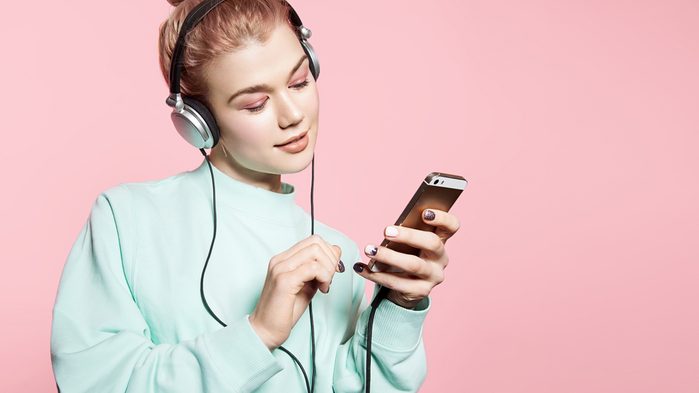
What’s that you say?
Hearing is like most things – you don’t miss it until it’s gone. But it doesn’t need to be this way. That’s why I reached out to Tracey Gale, director of audiology at Connect Hearing, a chain of audiologists office across Canada, to find out about the little things we do that could be ruining our hearing. (Other than your hearing appointment, you might know Connect Hearing because of the Quiet Choir awareness campaign which was launched for Better Hearing & Speech Month this May.) I found out a few common mistakes we make when it comes to our hearing (and a few I do myself) and how we can take better care of ourselves.
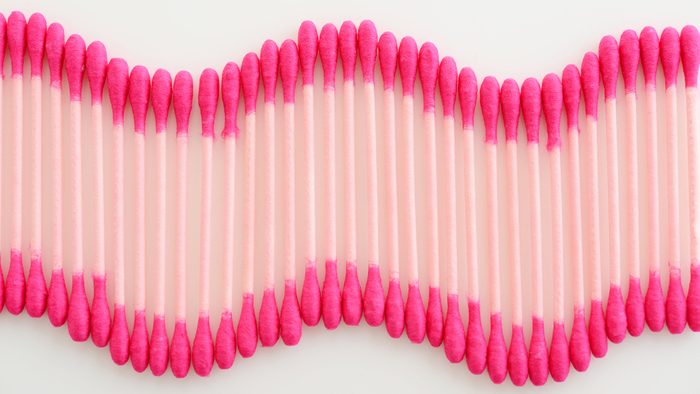
I use cotton swabs to clean my ears.
The audiologist says: “It is not recommended that cotton swabs be used to clean the ears as you could potentially rupture the eardrum, cause abrasions in the ear canal and push more wax back into the canal then you actually get out,” says Gale. “Wax production is our body’s way to clean and protect our ear. If there is an overproduction, it is best to let your medical professional safely remove it.”

I listen to music when I run.
The audiologist says: “Listening to music while exercising can enjoyable, but it can be hazardous to your hearing,” says Gale. “If you are running outdoors or on a treadmill, you are likely turning the volume up on your MP3 player or phone to overcome the noise of the traffic or the sound of the treadmill. This increase in sound volume may cause permanent hearing loss. Earbuds can be more dangerous to your hearing than headphones as the earbuds sit deeper into the ear canal and therefore can create greater sound output levels. It is important to use common sense: If you cannot understand a conversation while listening to music with earbuds/headphones, you are likely damaging your hearing.”
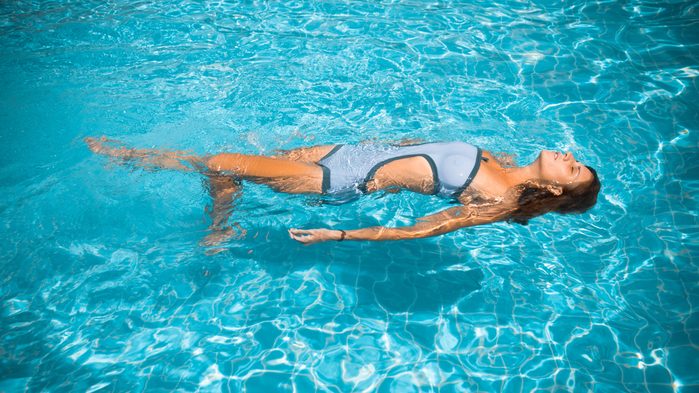
Sometimes water goes in my ears when I swim.
The audiologist says: “For most people, swimming in chlorinated water is harmless,” says Gale. “For some, water becomes trapped in the ear canal and becomes a breeding ground for bacteria. This bacteria can cause Swimmer’s Ear, which is when the ear canal becomes red, swollen and quite painful. Swimmer’s Ear should always be treated by a physician.”
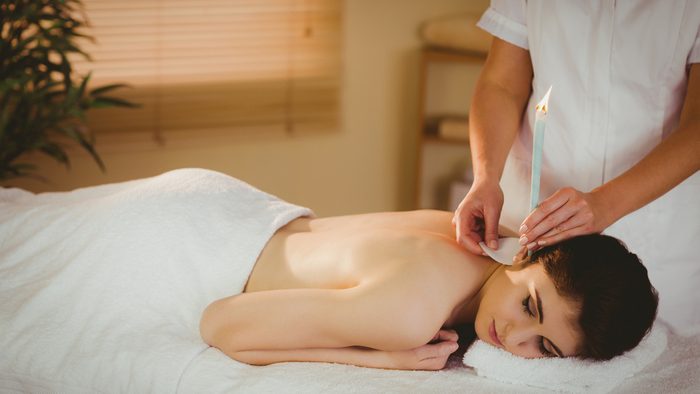
I treat myself to ear candling every once in awhile. Should I stop?
The audiologist says: “Yes,” exclaims Gale. “Some people think that ear candling creates a suction that will remove wax from the outer ear, while others think it can cure other medical problems including earaches, sinus problems, vertigo and even cancer. These claims are false. Research has shown that ear candling does not have any medical benefits. It has also been proven that ear candling does not produce significant heat or suction in the ear canal. However, there have been several reported injuries caused by ear candling including burns from dripping wax and ruptured eardrums.”

When I’m on a plane, I hold my breath to pop my ears.
The audiologist says: “Many people notice a pressure build up in their ears while ascending or descending in a plane,” says Gale. “To relieve the discomfort, some will pinch their nose and gently blow while keeping their mouth closed. Others find candies or chewing gum activate the muscles that help open up their Eustachian tubes [the tubes that link the ears to the nose]. Some people will wear filtered earplugs called Earplanes, that slowly equalizes the pressure against their eardrum during ascents and descents. There is likely not one solution that will work for everyone to relieve the discomfort. For those who have severe pain in their ears on planes, they should consult with their doctor for other possible solutions.”

I always sleep with ear plugs.
The audiologist says: “There are many people who are either light sleepers or have partners that snore that require the use of earplugs when they sleep,” says Gale. “While earplugs can be very useful, it is important that their use be treated with care as they can cause discomfort in the ear, fungal infections and wax blockage. It is important that while using earplugs on a regular basis, good ear hygiene be maintained. Earplugs that are reusable should be cleaned daily and ear canals should be checked regularly by a hearing professional or physician to ensure that wax is not plugging up the canal.”
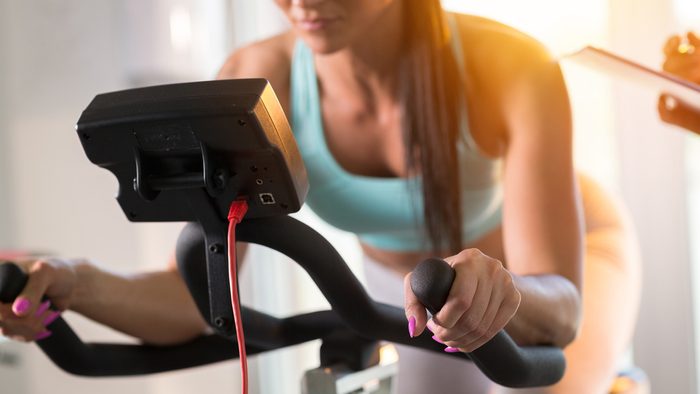
My spin studio plays the music so loud!
The audiologist says: “If the spin studio will not agree to turn down the volume, wear earplugs,” says Gale. “Recent research has found that the noise of fitness classes reach sound levels almost as high as a jet engine flying at an altitude of 25 metres, which is over a 100 decibles. This can cause permanent hearing loss.”
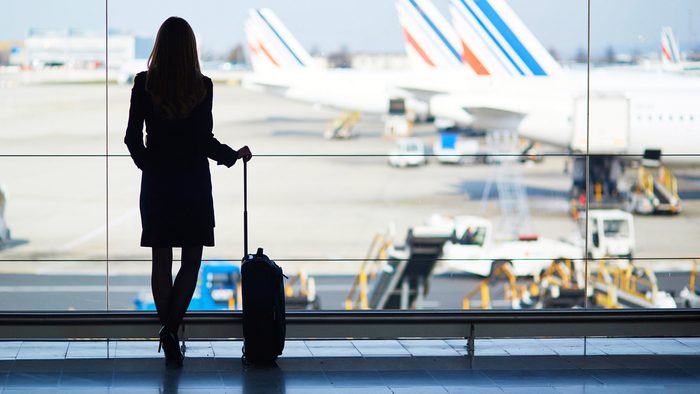
I going away on a trip, and I have a minor cold.
The audiologist says: “If you have a cold that cannot be controlled with over-the-counter medication then you are best to postpone your trip,” says Gale. “If your symptoms are controlled and you have to make that trip, be aware that you may have some ear pain due to the inability to equalize pressure between your ear and the outside world. You may also notice some hearing loss for a few days and in extreme cases, bleeding or a ruptured eardrum. It is always best to check with your physician if you have doubts on whether your symptoms are controlled before you fly.”

It stresses me out when my ears won’t stop ringing.
The audiologist says: “Tinnitus, often referred to as ‘ringing in the ears,’ is a sound or noise that occurs without a corresponding sound in the environment,” says Gale. “Tinnitus is a symptom, not a disease, and there are many factors that may lead to the development of tinnitus. Studies have shown that stress can make the tinnitus experience worse. Anything that can help lower a person’s stress level – yoga, meditation and deep breathing – would likely have a positive effect on their tinnitus.”

But I don’t want to get a hearing aid.
The audiologist says: “Don’t delay treatment of hearing loss,” says Gale. “People with hearing loss delay getting treatment for hearing loss as they are unaware that early treatment of their hearing loss can greatly change the quality of their life. Research by the National Council on the Aging demonstrated that hearing aids were clearly associated with improvements in social, emotional, psychological and physical well-being of those with hearing impairment in all hearing loss categories from mild to severe. Hearing loss treatment was shown to improve: Earning power, communication in relationships, emotional stability, physical health and group social participation. As well, hearing loss treatment was shown to reduce: Anger and frustration in relationships, depression and depressive symptoms, feelings of paranoia and anxiety. Why wait to seek treatment when hearing aids can positively impact the quality of your life?
